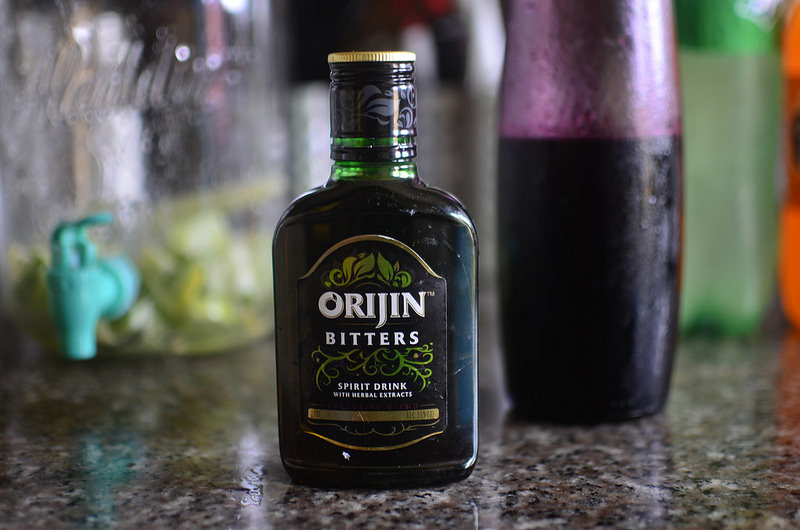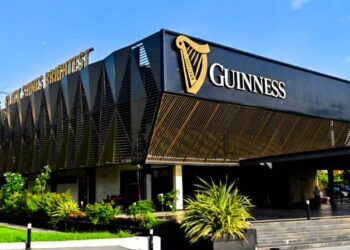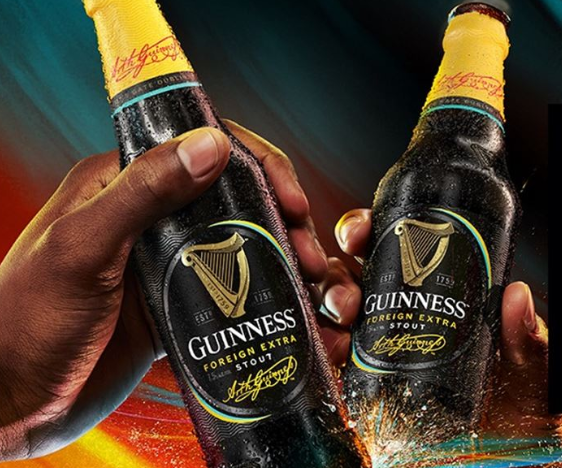Guinness Nigeria Plc released its 2015 first quarter results for the period ended September 2015 showing pre-tax profits fell a whopping 71% year on year. The company had in the preceding quarter also announced a 20% drop in full year profits as it continues to quiver over a shift in beer consumption pattern in Nigeria. Any keen observer would have noticed that Nigerians currently drink more of spirits than beer.
It is not that Nigerians don’t love beer, it is just that they have changed their tastes, sentiments and preference. In changing consumption patterns they have also decided on how much they can pay for alcohol. With the influx of various liquors (both refined and unrefined) all over our street corners, most people are washed with options…much cheaper options. With as much as N50, you can get yourself a ‘quality’ douse of alcohol enough to satisfy thirst. The days where you need to rely on bottled beer to quench thirst is gone and won’t be coming back soon. Guinness recognised this change in consumption pattern and had quickly settled in for value beers. In comes Orijin!
Orijin
Guinness reported its first major profit decline in 2012 when it miscalculated by increasing prices of its flagship brands. The increase in prices affected volumes as beer drinkers abandoned its premium brands for cheaper brands that were near substitutes. This was a major headache for Guinness who quickly responded with an intensified marketing of its Dubic brand which it launched in 2012. It did not stop there and went on to Launch the Orijin brand in 2014. With two value brands in the market (in addition to Snap) it had at least protected market share. Losing on both market share and sales was not an option.
Impact of Orijin
Orijin to its credit has taken the market by storm and is probably one of the most popular drinks in town. The drink comes in various flavours, shapes and sizes and caters to different tastes and pockets. Whilst the drink has been a major hit amongst beer drinkers it hasn’t been a success story for Guinness as the results indicates.
Guinness makes its money by selling premium beer which is what Guinness Stout has done for decades. It’s premium positioning and pricing helps Guinness pay for its huge operational costs. However, with people drinking less Guinness and more Orijin the company cannot generate enough sales to drive profitability growth. It is a challenge the company itself recognises affirming it when it presented its investor presentation for its 2014 FY results. Back then it referenced growth in its value segment as one of the major drivers for its profitability decline.
The CEO also referred to the impact of the growth of its valued brands in its press released issued last week.
“In the period under review, sales continued to grow despite a challenging trading environment, being 3% ahead of the same quarter last year. Despite the sales growth, gross profit declined by 12% versus the same period last year due to the impact of exchange rate devaluation, inflation, an increased share of value brands, together with the phasing of costs. ”
So whilst Orijin has been a major success for the company in terms of gaining market share and increasing top line sales, it has also crowded out Guinness Stout taking down profits in its wake. How the company intends to balance this quagmire is unclear as it has not provided investors with a pathway. It has to continue to rely on Orijin to drive sales but will need Guinness sales to bounce back if profits are to grow again.
For now it seems they are focused on reigning in on cost whilst maintaining market share. Their fate is probably intertwined with spending and consumption pattern of Nigerians which is affected by increase in their disposable income as well as a rebound of robust economic growth. For now, they can only hope that you drink more Guinness Stout.

















Very detailed and highly informative write up. What I feel is interesting is that the influx of spirits has largely been by the parent company of Guinness,Diageo. Therefore it is a case of substituting market share from one brand to another. If Guinness is going to make a comeback in Nigeria it would have to re-focus its strategy across two fronts: marketing and segmentation.
Marketing because the demography they catered to from inception are either dead of above 50 and the demography consisting of younger people have an affinity towards spirit. Hence I’m not sure if the made of black campaign was successful but attaching the consumption of Guinness to events such as watching football or outdoor bbq’s might be a way of positioning the brand as an enjoyable alternative to when spirits are not being consumed.
Segmentation in that, the upper echelons in Nigeria are more inclined to consume sprits because they can afford to pay the high prices attached to them but a significantly larger market exists towards the base of the market and they are outside Lagos. The focus should be on capturing the market outside lagos, a job Nigerian breweries is already doing well at.
Thanks for your great analysis as well. Do you think Guinness may soon dump its premium Stout for more value brands? Especially if it figures out a way to contain cost.
well I think leveraging the brand equity of Guinness by expanding the product breadth might just be the way to go.An example of this would Star and its newer extensions (radler and lite)…but one thing is for sure, beer and pepper soup,asun and suya are a part of our culture. No way I would have a glass of henny and coke when presented with those.
I’m trying to understand, orijin is a product if guiness plc right? so why is their profit only directly linked with sales of guiness stout? don’t all their products contribute to their profit margin?
Yes it contributes to the bottom line. Look at it this way. If for every N100 in sales for Guinness you get N50 profit and for every N100 sales in Orijin you get N10 profit which will you rather sell more?
I think it is still a beer world out there (Nigeria). More people still drink beer than any other alcoholic beverage. Why beer may have lost a some ground to wines and spirits, every available data still supports that beer remains the dominant alcoholic beverage most Nigerians consume.
The problem with the Guinness Stout is that its time has passed and unfortunately, Guinness Nigeria doesn’t realize it or they are in denial. There was a time in this country when six out of every 10 cars on the road was a Peugeot. As we all know, that is no longer the case, and Peogeut, the company also understands that. They are not trying to make cars no one wants.
What Guinness Nigeria needs to do is come up with better product offerings. A good high strength beer that would appeal to the masses. Beer drinkers have an emotional attachment to their preffered brand. I think that the population of Stout drinkers have dwindled to the point it is affecting the company’s sales and profit. One has to acquire the taste for Stout to enjoy it. My parents drank stout but I could never understand why anyone would want to drink it.
In terms of Dubic and other beer brands the company currently has as offerings, perhaps they are not good enough. I have never tasted Dubic. However, for me, the name Dubic sounds foreign. A beer that was pushed down to us from Europe with no characteristics of the Nigerian. The company needs to keep thinkering with new products, coming up with other offerings until they hit the bulls eye, so to speak. They did it with Origin and they can do it again.
Thanks for your comments. Very instructive